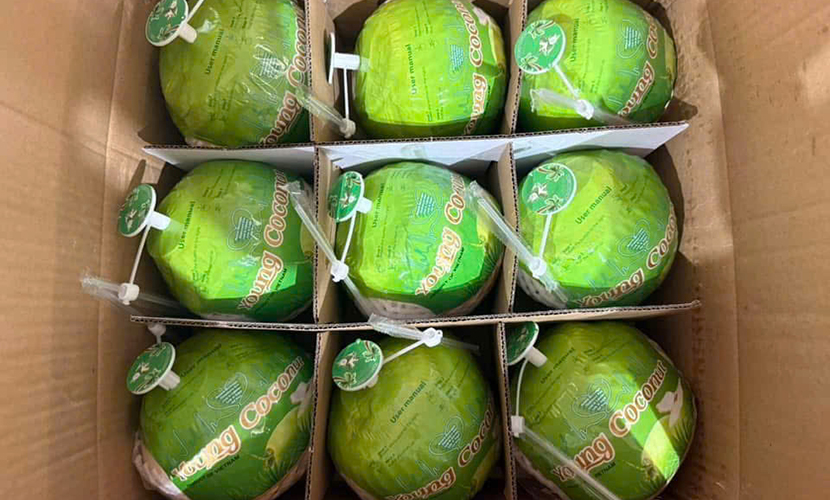
In 2024, export value of Vietnamese coconuts increased to $1 billion. According to experts, this figure can be maintained and even increase sharply if it receives proper investment.
Customs data shows that by the end of 2024, the total coconut export value reached nearly $1.1 billion. This value showed an increase of more than 20% compared to the year of 2023. Of which, fresh coconut exports reached $390 million, an increase of 61% over the same period.
Vietnam currently has 200,000 hectares of coconut, with an output of two million tons per year. One-third of the area meets organic standards, mainly in the Central region and the Mekong Delta.

Vietnamese coconuts
In which, Ben Tre is the province that has the largest cultivation area of Vietnamese coconuts. Ben Tre coconuts have received geographical indications, with 133 growing area codes. Notably, the province has more than 8,300 hectares of Vietnam’s coconuts for export.
With more than 600 manufacturing and processing enterprises, the Vietnamese coconut industry has a competitive advantage in the international market. Vietnam ranks forth in coconut exports in Asia – Pacific and fifth in the world.
Currently, the international market demand for the coconut industry is still very large. Export businesses of Vietnam’s coconut are increasing the collection of domestic products. The price of fresh coconuts in key growing areas continues to keep at a high level, nearly 20,000 VND/fruit.
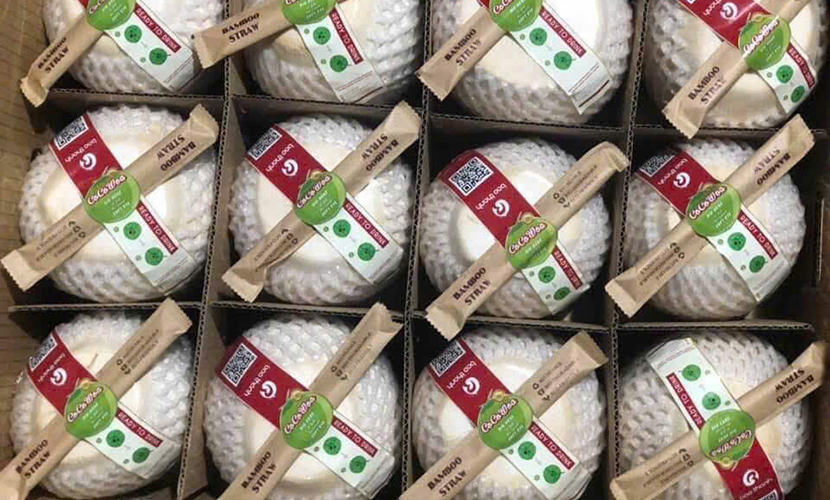
Young coconut from Vietnam
Ms. Hang, an industrial export, said that the source of coconuts is currently scarce despite the high price. Explaining the above situation, Ms. Hang informed that after signing the Protocol with China, Vietnamese coconuts have a wide path to this market. Since 2024, businesses have received many export orders, however, collecting raw materials is not easy.
“Localities currently do not have many large-scale growing areas of coconuts. Therefore, businesses should buy from people’s gardens at prices ranging from 18,000 VND/fruit. However, each household only has a few dozen to a hundred trees. Then, businesses have to buy in small quantities, sending people to each household to collect without any goods.
The reason that people have not grown large quantities is that they cannot guarantee output. In particular, coconut trees have a relatively long-living time. It can only give harvest after 3 years,” said Ms. Hang.
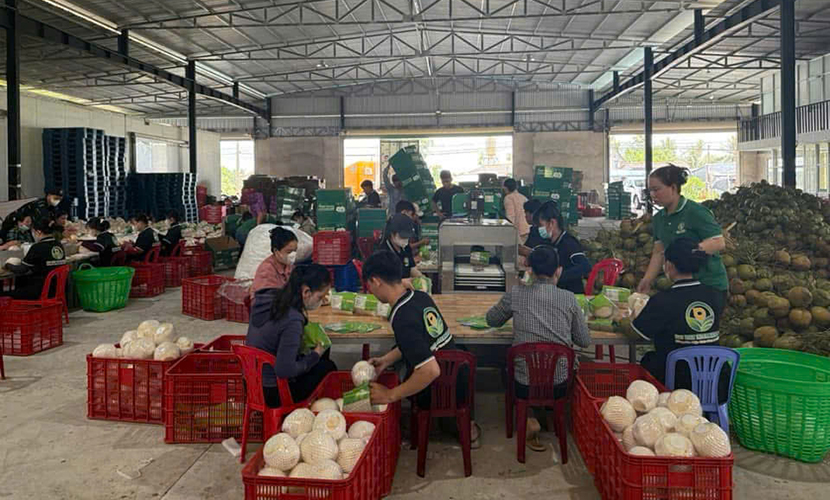
Coconut packing house in Vietnam
At the same time, people are also unaware of the policies and requirements of the import market. For example, for China, this country only imports hybrid Siamese coconuts from Vietnam. However, not so many people know that the weight after cutting the “diamond” must be from 900g or more.
“In Vietnam, there are many coconut varieties, but not many meet the standards. Currently, businesses can only collect about 1-2% of orders that meets the import requirements,” said Ms. Hang.
Talking about building a growing area and long-term development, Ms. Hang commented that coconut trees have the huge potential to develop. Due to their specificity, growers do not have to spend much effort to take care of them. Moreover, pests and diseases do not invade, so it is not necessary for spraying pesticides like other fruit varieties.
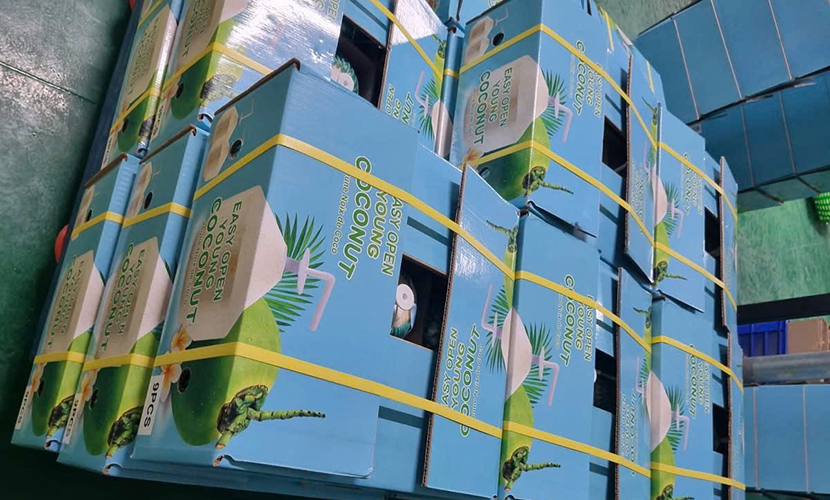
Vietnamese coconut carton boxes
At the same time, coconuts preserve themselves very well. For example, fresh coconuts can be kept for about half a month in the natural environment while still ensuring quality. Meanwhile, other fruits after harvest must be put in cool containers for preservation, incurring additional costs.
“Although it takes 3 years to harvest, farmers can exploit coconut trees for tens to hundreds of years. In particular, every part of the coconut trees has economic value.
For example, for coconuts, after peeling and exporting the core, we can process the coconut fiber to make a substrate, a component to loosen the soil for planting trees. Coconut shell is the main material for producing coconut shell briquette charcoal. Growing coconut trees helps coastal provinces achieve carbon certification”, Ms. Hang stated.
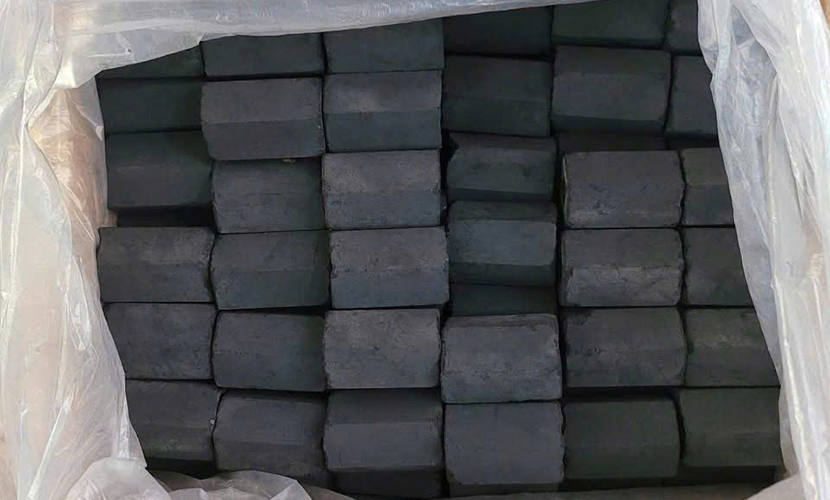
Coconut shell briquette charcoal from Vietnam
According to a business leader, for coconut products, not only China, the whole world market has demand. With the characteristics of high nutritional value, many products such as oil, powder, and coconut milk can be processed. However, with low investment costs, localities as well as policy makers should develop a strategy to develop this fruit.
There are 225 countries in the world that have import demand. However, up to now, there are only 179 countries that have coconuts for export. Of these, 5-6 countries have an export output of over 90% (led by the Philippines, Indonesia, Malaysia, Vietnam and the Netherlands). This shows the great potential of the Vietnamese coconut processing and export industry.
In addition to great opportunities, the Vietnamese coconut industry is having to solve the “problem” from building a brand. In addition, the industry should invest in deep processing and build a sustainable chain of links to developing infrastructure for raw material areas.
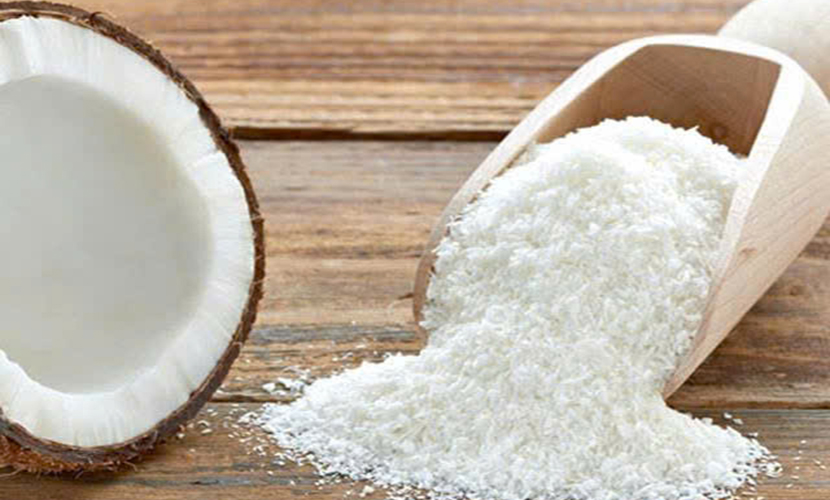
Desiccated coconut from Vietnam
Mr. Khoa, General Secretary of the Vietnam Coconut Association, said that currently, with the great demand of the market, many businesses have invested in building processing infrastructure and promoting coconut purchasing.
These developments bring immediate benefits to farmers. However, they pose problems for the stable and sustainable development of the industry as well as Vietnamese coconut businesses.
According to the leader of the Vietnam Coconut Association, to develop the coconut industry sustainably, it is necessary to implement solutions to limit the export of raw materials. The reason is that this product has low value, reducing the investment attraction of domestic factories as well as affecting the long-term development orientation.
For more information of Vietnamese coconuts, please contact us on the following information:
Company: Agrideco Vietnam Co., Ltd.
Address: No 02, Alley 325 Kim Nguu, Lane 24D, Vinh Tuy Ward, Hanoi, Vietnam
Tel/Whatsapp: +84 989 649 804
Website: https://agridecovietnam.com
Email: agridecovietnam@gmail.com
